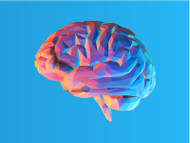What is mental clarity?
Mental clarity, or concentration, is your ability to focus and pay select attention to thoughts or tasks. Your mental clarity allows you to direct your mind clearly to an activity and is a function of cognitive health.
What are signs of mental clarity?
Being able to concentrate or have mental clarity can impact many aspects in your life. You may find you need mental clarity to be able to learn, perform and complete tasks.
Signs of mental clarity include your ability to:
- Complete one activity at a time without distraction
- Shut out anything that hinders your concentration
- Focus your attention selectively
- Maintain calm focus on the task at hand
- Control and alter your focus as needed
What causes mental clarity?
Your mental clarity is influenced by how efficiently your brain processes information. When you need to pay attention to a task, certain parts of your brain help you to focus, and coordinates with other parts of the brain to carry out the task. As you age, your brain function may change, and you may be less likely to process information quickly.
Speak to your doctor if you are concerned about any medical conditions or medications that are influencing your cognition. If symptoms of poor mental clarity persist, consult your healthcare professional.
Protecting mental clarity
If you don’t have an underlying medical condition, you may be able to assist your mental clarity by altering your lifestyle with a combination of factors:
- Stress – we all cope differently with stress, yet excessive stress can cause symptoms that impact mental clarity.
- Nutrition – eat a well-balanced, healthy diet that’s low in salt and high in fresh fruit and vegetables. Your brain functions best when you consume high-quality foods that contain lots of vitamins, minerals, and antioxidants.
- Exercise – keeping physically active is vital for brain health, with research showing a direct link between physical activity and improved brain function. Exercise can also improve your balance and lower your risk for brain injury from falls as you age.
- Get plenty of sleep – lack of sleep can affect your cognition. Try to aim for seven to eight hours of sleep.
- Stay mentally and socially active – keep your mind active with puzzles or taking up a new hobby. If you’re alone consider volunteering your time or joining a local club to feel connected to your community.
It’s important to know that you are not alone with your symptoms as others can experience them too. The good news is that KeenMind by Flordis may be an option for you. KeenMind is a natural medicine that’s clinically proven to support memory, concentration and learning retention. Beneficial during times of stress, KeenMind can help provide calm focus.[1-5]
References
1. Stough C, et al., Psychopharmacology (Berl) 2001;156(4):481-484. Funded by a Research Grant from Keenmind Pty. Ltd.
2. Stough C, et al., Phytother Res 2008;22(12):1629-634.
3. Downey LA, et al., Phytother Res 2012;27(9):1407-1413. Funded by Soho Flordis International (SFI).
4. Roodenrys S, et al., Neuropsychopharmacology 2002;27(2):279-281.
5. Benson S, et al., Phytother Res 2014;28(4):551-559. Funded by Soho Flordis International (SFI).
Always read the label. Follow the directions for use. If symptoms persist, talk to your health professional.

